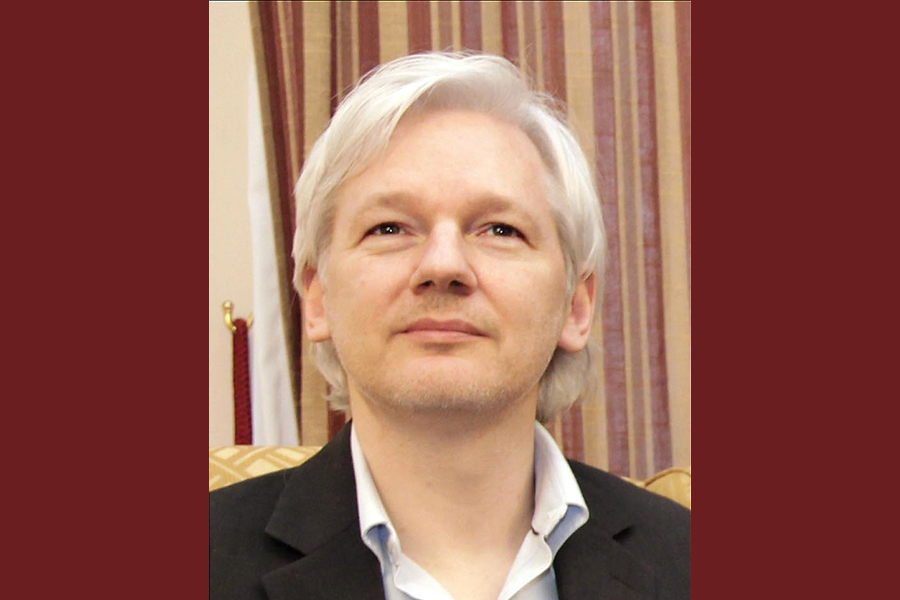
Assange’s legal access limited

By TARA WESSON
WikiLeaks founder Julian Assange appeared in Westminster Magistrates Court, London, on Mon 13 Jan where the Court heard that the the Australian journalist’s defence team has had a lack of access to their client. This impacts on Assange’s right to a fair trial, ahead of his extradition hearing to USA in Feb 2019, and comes amidst concerns about Assange’s health while in custody at London’s Belmarsh Prison. Reporters Without Borders (RSF) has called for his immediate release on Humanitarian grounds.
The 48 year old appeared subdued and uncomfortable, saluting his supporters and speaking only to confirm his name, date of birth and nationality. District Judge Vanessa Baraitser heard that lawyer Gareth Peirce was permitted only two hours with Assange since the last hearing, and that Assange had not yet seen three pieces of recently acquired evidence.
Peirce added that she would struggle to submit this evidence to the prosecution for response, due to the “extremely worrying” delays and time constraints.
Interests of justice
Baraitser adjourned the hearing to 2pm that afternoon, granting Peirce an additional hour with Assange, as well as an hour on Thursday to finalise the exhibits presented to the prosecution on Friday.
“Can I make it clear that I have no desire to stand in the way of any lawyer having proper access to their client and it’s in the interest of justice that they do,” Baraitser said. “What I can do and say is to state in open court that it would be helpful to this extradition process that Mr Assange’s lawyers have the access to their client.”
The hearing took place a day earlier than originally scheduled, causing additional lost interviewing time. The court heard that access to Assange has also been limited at Belmarsh prison, despite there being several empty rooms. Peirce is considering filing a claim for judicial review in relation to this lack of access and its breach of Assange’s rights. RSF supports the notion that this violates Assange’s fundamental rights, and plans to monitor the extradition hearing.
Assange will fight extradition to the US where he faces 18 charges, 17 of them under the Espionage Act. RSF has condemned the UK Home Office’s approval of the US extradition request.
UN Special Rapporteur Nils Melzer expressed his alarm last November “at the continued deterioration of Julian Assange’s health since his arrest and detention earlier this year,” saying “his life was now at risk”, and that Assange has showed “all the symptoms typical for prolonged exposure to psychological torture.”
Over 60 doctors worldwide voiced their “serious concerns” in an open letter to the British Home Secretary, Priti Patel, calling for Assange to be moved from the high-security jail to hospital. Requests for numerous doctors to examine Assange have been denied.
Slowly dying?
At a hearing in Oct 2019, Assange seemed to struggle to say his own name, telling the court: “I can’t think properly.” Assange’s father also said he needed to “face the bitter truth” that his son “may die in prison.”
Over Christmas, journalist Vaughan Smith told RT that Assange sounded on the phone as though he had been sedated: “He said to me: ‘I’m slowly dying here’… Julian is highly articulate, a very clear person when he speaks. And he sounded awful.”
British authorities have not responded directly to these allegations, but have denied any mistreatment.
Assange’s next hearing is scheduled for 23 January 2020, where he will appear via video link from Belmarsh prison. The extradition proceedings will commence in February.
For all of City Hub’s Julian Assange coverage: http://cityhubsydney.com.au/?s=assange









